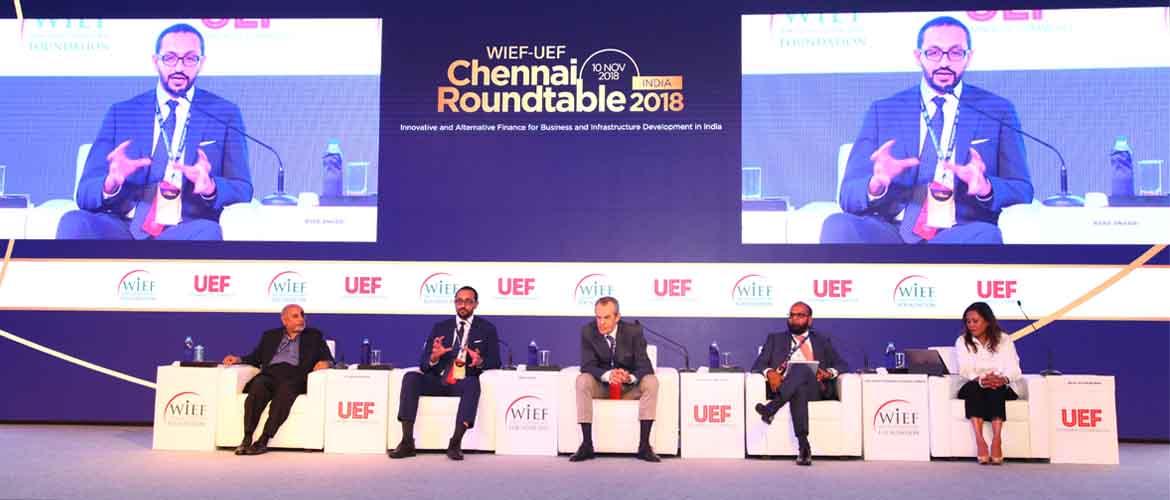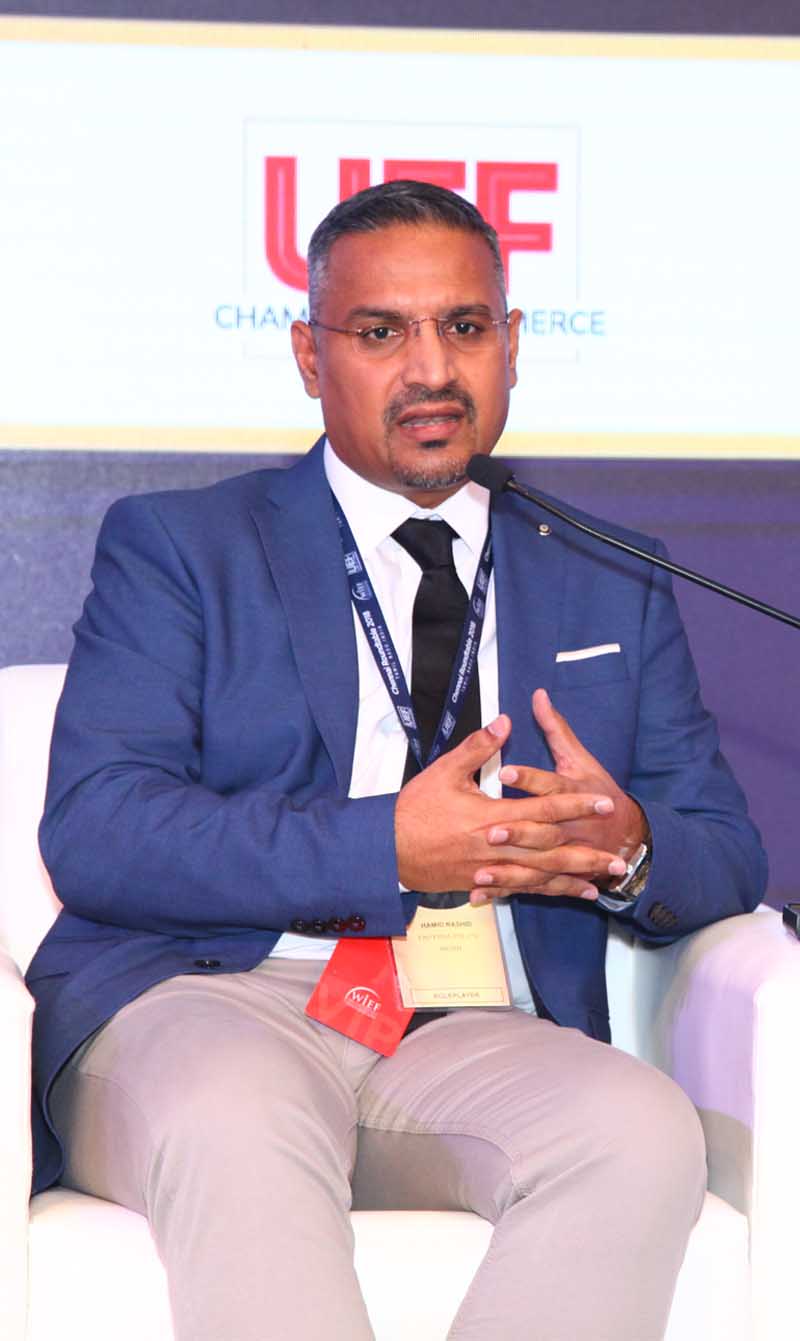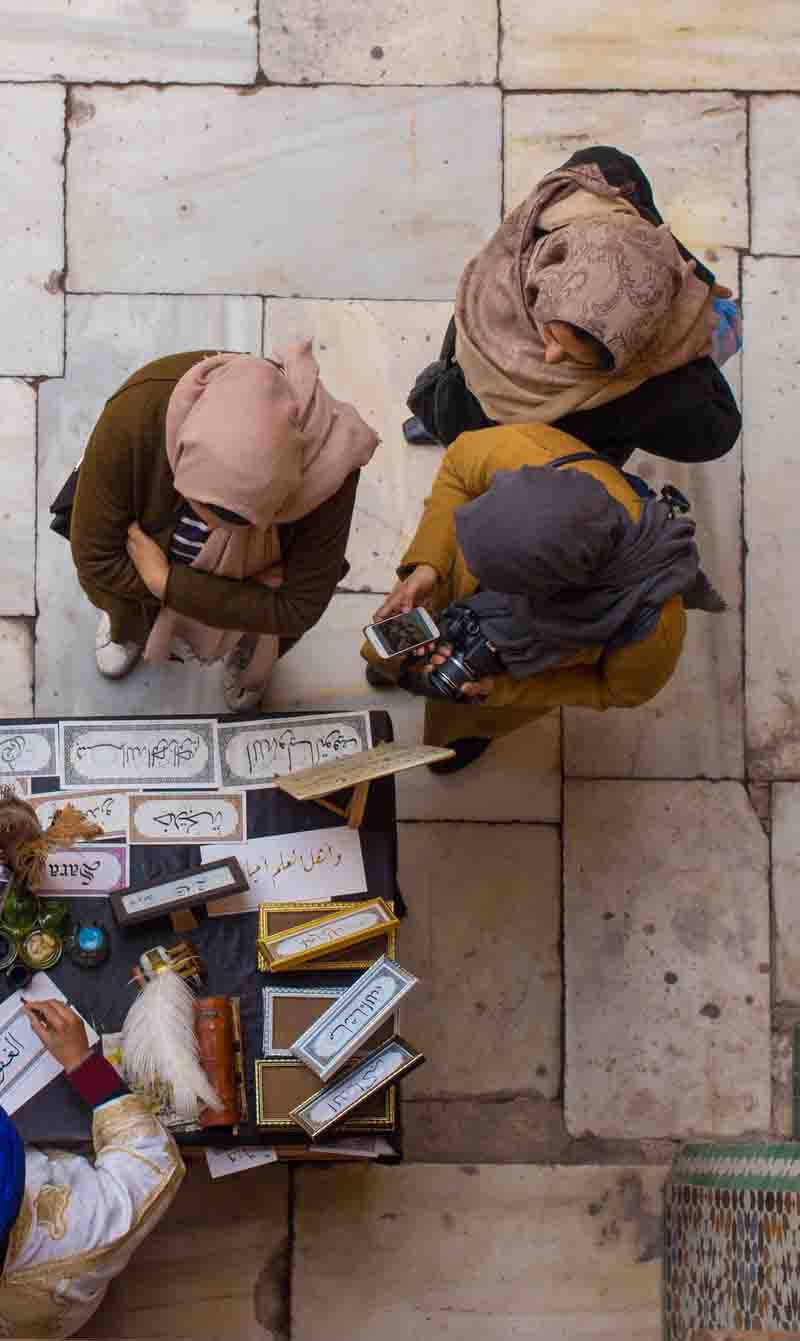Advancing Islamic Finance in Non-Muslim Countries
Despite regulatory obstacles faced by operating in a non-Muslim financial market, Islamic finance has slowly gained foothold in Europe and other parts of the World. At one of the panel discussions at the WIEF Roundtable Chennai 2018, Islamic finance issues and challenges faced in four non-Muslim countries were discussed by a panel of speakers.
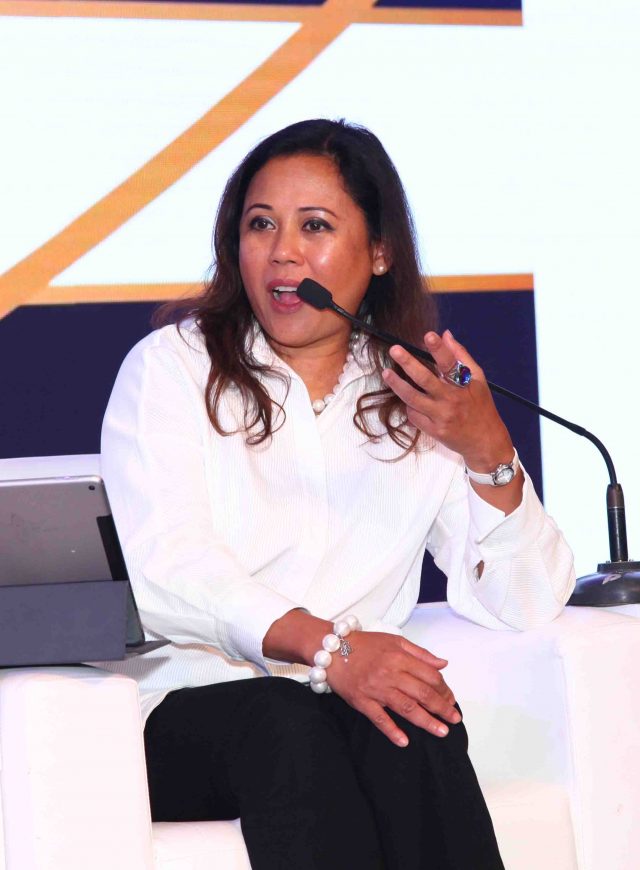
Raja Teh Maimunah Raja Abdul Aziz, managing director of Wholesale Banking at AmBank Group in Malaysia, moderated a panel discussion, Islamic Finance in Non-Muslim Countries: Learnings from Abroad, at the WIEF Roundtable Chennai, India, in 2018. She briefed the audience on the state of Islamic finance around the world and introduced four speakers from Italy, Sri Lanka, Australia and India who gave their respective experiences in the industry.
‘We have 56 OIC members and there are only eight countries that make up the total 85 per cent of Islamic banking assets,’ she began. She opined that this wasn’t good or big enough in comparison with other countries. ‘I’m encouraged when I look at the United Kingdom. They actually have six standalone Islamic banks and in total 20 Islamic financial institutions (IFIs), and in Singapore and Hong Kong, they made changes to their laws, yet, we don’t see very much traction,’ she said. The panel of speakers talked about what their countries have achieved in the field of Islamic finance.
In Sri Lanka
Raja Teh spoke of the Indian perspective, which is rife with scepticism, as to how Islamic finance could grow in India, as India is not a Muslim country. Mohamed Thowfeek Mohamed Azmeer, CEO of Amana Bank in Sri Lanka spoke about how Sri Lanka’s Islamic finance penetration scored 1.5 per cent compared with the global 0.9 per cent, according to Pew Research (USA)/IFSB. Thomson Reuters also noted that, as a non-Muslim country, Sri Lanka had scored higher than South Africa, United Kingdom and Singapore. Sri Lanka had one fully fledged Islamic bank, two windows owned by state banks and FI’s, 14 windows owned by private banks and FI’s, three takaful insurance companies and four shariah-compliant unit trusts.
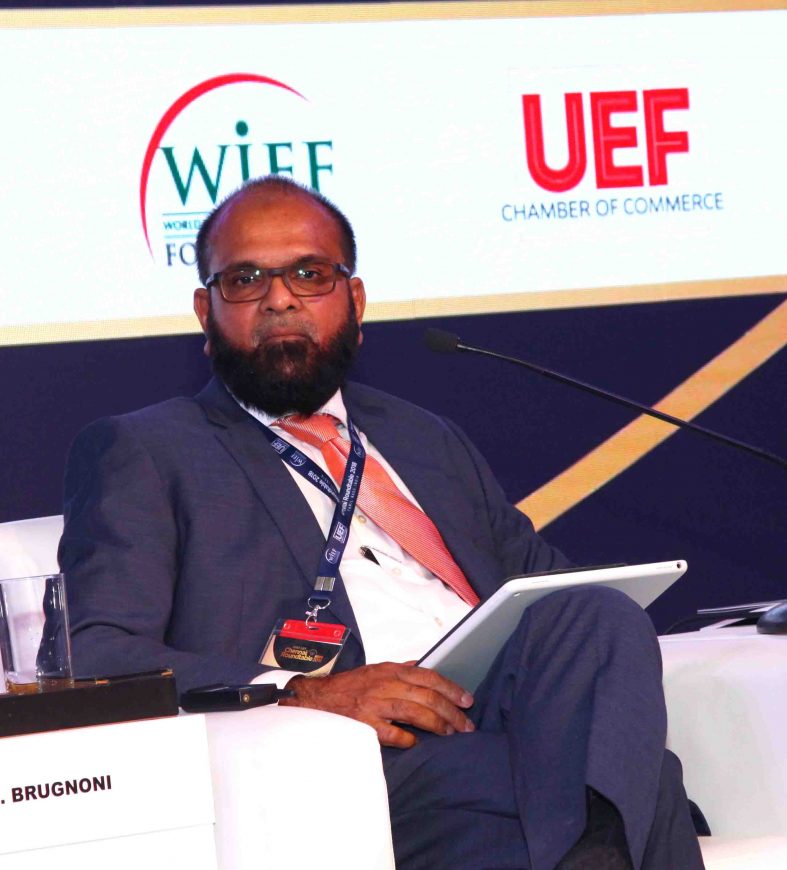
Some of the sectors impacted by Islamic finance in Sri Lanka included infrastructure, agriculture, manufacturing, fisheries, shipping and logistics, and aviation and transport. ‘The first step we took was to demonstrate the market need for Islamic banking and that it’s not only for Muslims but beneficial for society at large,’ Mohamed said. It required them to go beyond the faith value and highlighted how Islamic banks could boost the SME sector and help bring indirect investment.
‘We also showcased the universal value proposition, and with the help of partners, such as the Islamic development bank (IDB), we demonstrated to stakeholders, investors, regulators and the government how Islamic banking can grow into risk management, governance and compliance bringing in the best global practices,’ he added. To avoid excessive growth of the Islamic financial sector which could lead to a debt trap, Islamic banking was not allowed to operate in isolation, but had to be linked or integrated to the real economy.
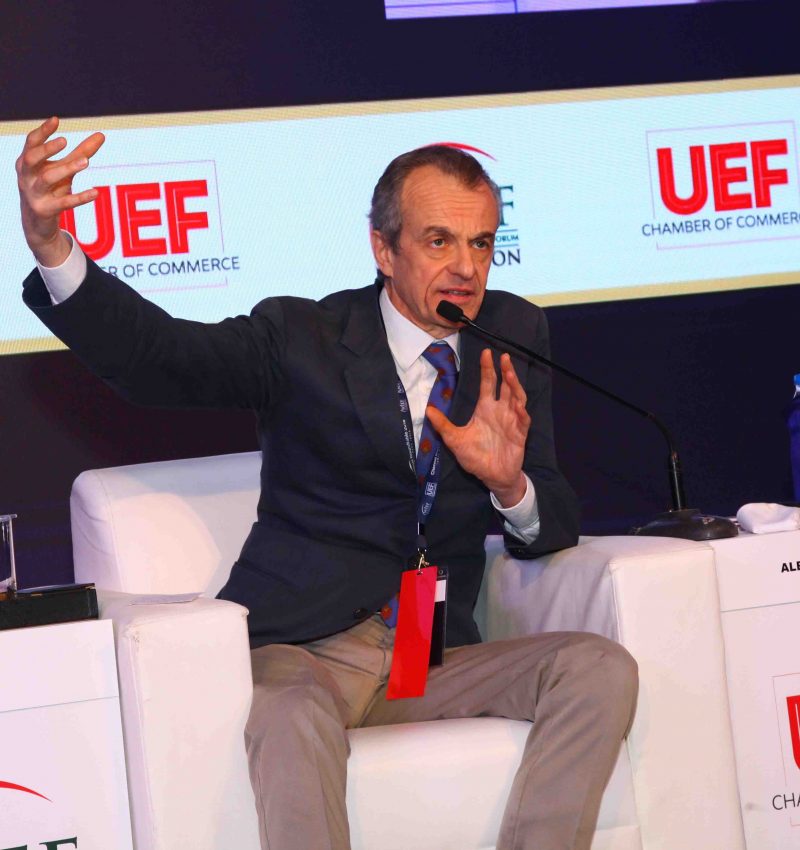
In Italy
Alberto G. Brugnoni, founder and managing partner of the Association for the Development of Alternative Instruments and Innovative Finance (ASSAIF) in Italy, told the panel about the history of Islamic finance in Europe and how it began in 1986. From his experience, he saw that Islamic finance was a concept that was embedded in everybody’s mind. ‘You talk about profit sharing, loss sharing, tangible assets, social justice, respect of environment and all those things are engraved in the Quran. That is the reason why Islamic finance is an easy sell to pitch,’ he said.
He believed that Islamic finance is a bottom-up approach and that people should stop waiting for something to come from above [as in the heaven’s] to help in reality. ‘Stop thinking that we don’t have rules or regulations and this and that. I’m not totally acquainted with the legal framework of Tamil Nadu, but certainly, you can do some sort of micro-murabahah or leasing,’ he said.
In Australia
Asad Ansari, co-founder and chairman of Amanah Islamic Finance in Australia, gave the audience a closer look at Australia’s Muslim population, which was about 600,000. Compared with the total population of Australia being 25 million, that’s a very tiny group. With this Muslim minority in mind, Amanah Islamic Finance decided to focus on financial inclusion and make available a wide variety of financial instruments to use.
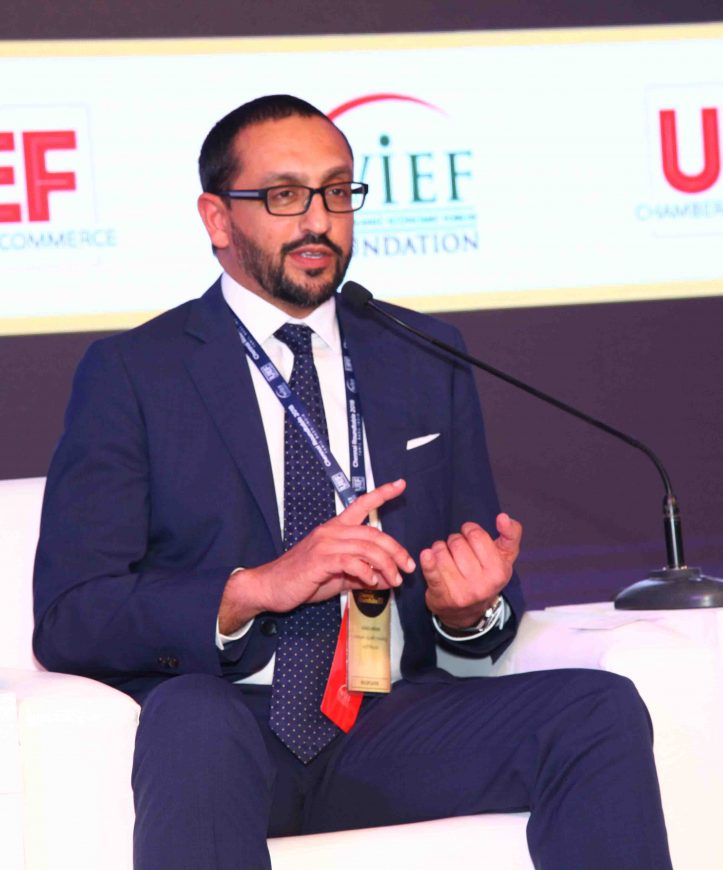
‘Our home loan market in Australia measures banks and non-banks and the total amount of loans in worth about USD1.7 trillion. Our pension funds are superannuation, which means it’s a compulsory system, and it’s worth about USD2.7 trillion, and we have four major banks in Australia, with banking assets in a total of USD3.5 trillion,’ he explained. Amanah Islamic Finance had worked closely with the Australian regulators and taxation office for a private ruling system to ensure that shariah-compliancy was consistent with Australian tax laws and had no adverse tax consequences. ‘We did that on our own, we didn’t have help form the Australian government,’ Asad said.
Their second issue was how to fund it. ‘Because of the high house prices, even a small amount of money for 600,000 Muslims who are buying houses is going to be a big number,’ he explained. That’s why Amanah Finance began to focus on overseas connections, but one of the hardest realities was the volatility of the Australian dollar ‘This meant that if you’re coming from overseas using a USD balance sheet and invest in Australia, your return and cost of hedging will get you almost zero per cent,’ he explained. Making this pitch to overseas investors was almost impossible. They then relied on the mature pension fund market and began looking internally. ‘We found there was enough of a market to find investors within Australia. So, we funded it domestically and I think that’s the key tool. Now, we’re growing at a rate of about 80 to 100 million dollars a year and we have more than enough to fund us,’ he said.
In India
Abdur Raqeeb, general secretary of the Indian Centre for Islamic Finance in India, spoke about the situation in India being similar to that of Sri Lanka, where giving gold as a collateral loan and so many other similar things was common in India. ‘There have been two reports that came from a committee formed by the prime minister himself that interest free windows can be introduced into conventional banks, but due to political pressure, this has been held up,’ he said. The problem that Abdur Raqeeb mentioned was, that India had two stock exchanges which were about 20 per cent shariah-compliant.
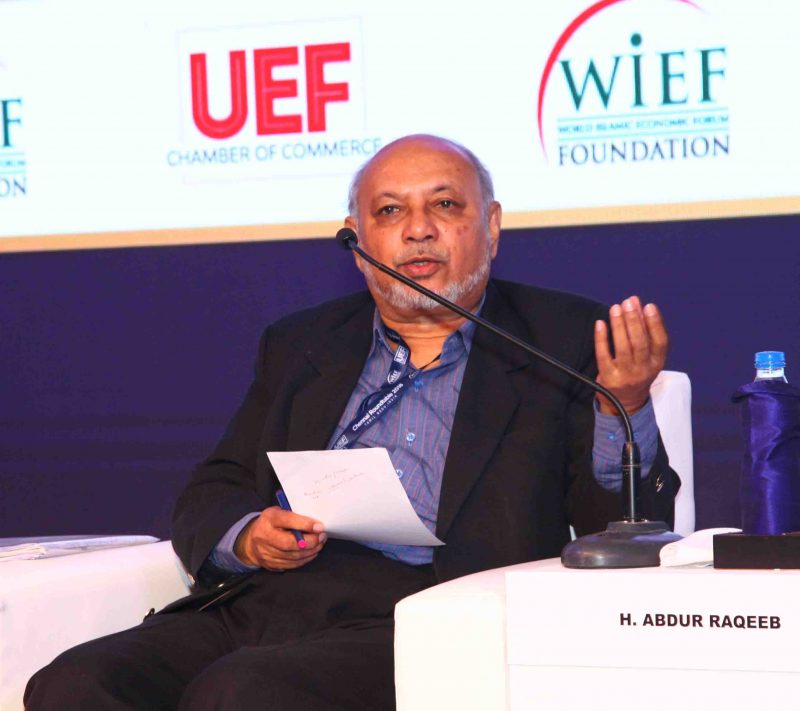
However, he believed that there were many barriers and a lack of trust that was stopping Indian Muslims from participating in an interest free system. Financial literacy is very important for Indian Muslims which make up 200 million of the population.
‘The State Bank of India (SBI) came out with a shariah-compliant mutual fund, but eight hours before the launching it was deferred and some people gave the wrong information. So, we were going to rectify it and relaunch it, but it has been five years now. SBI’s office said that not a single Muslim community member has come out and asked to relaunch it,’ he said, emphasising the need for financial literacy.
Another point he put across was a demand for Islamic products for farmers to somehow help alleviate their very harsh conditions and poverty. ‘Nowhere in the world are farmers working 8 to 16 hours a day and going hungry at night. We should initiate some types of product to help them get out of committing suicide,’ he said. Abdur Raqeeb was hopeful that Islamic banking could be able to turn things around in India for Muslims and non-Muslims.
Last words
The speakers unanimously agreed that there was a need to start within and not wait for regulations and government structures to support shariah-compliant financing. Though it seemed exciting to reach out overseas, the key at the end of the day was to start from the bottom. ‘The market may be worth five to 10 billion dollars and it’s never going to be anything in comparison to a market worth USD3.5 trillion, but you can start from scratch and it can grow from there,’ Asad said.
Alberto suggested opening halal tourism in India, since there were many Islamic heritage sites. ‘In Italy we used only the Italian Islamic heritage to create a product and sell this to the government and the people coming,’ Alberto said.
Raja Teh understood some of the problems from sceptics in India that could deter such progress, but even that could be overcome as it was in Malaysia many years ago. ‘If you can find a way to open windows if not through banking, maybe through shops. In Indonesia, that’s what they did. There are even telco models out there. So, think out of the box,’ she concluded.
___________________
